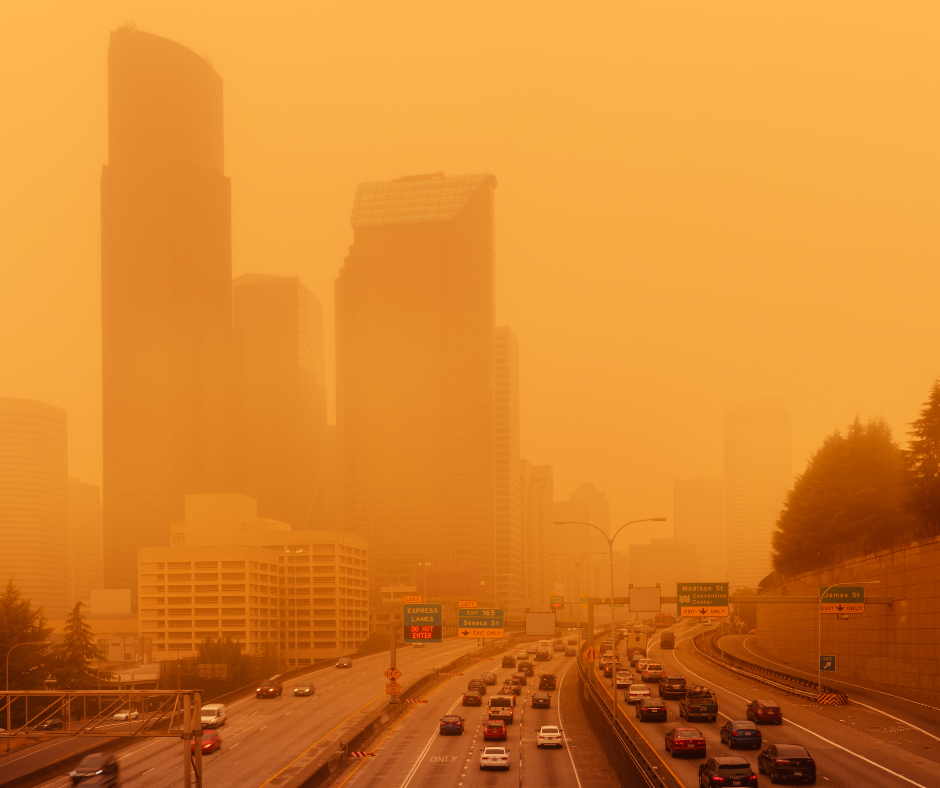Our everyday environment has a big impact on our sleep quality. For example, people who live in unsafe neighborhoods are more likely to have trouble sleeping, streetlights can make it harder to fall asleep, and the sound of cars stopping and starting at a stop sign outside of your bedroom window can inhibit restful sleep.
Now, there's another environmental factor that may be disrupting our sleep: air pollution.
The devastating wildfires that have gripped the West for several years and now plague Canada, have produced severe air quality readings throughout the East Coast bringing with it the potential to negatively impact sleep.
A 2017 study found that people who are exposed to high levels of air pollution (such as nitrogen dioxide emitted from vehicles and particulate matter such as ash and soot from fire) are more likely to have low sleep efficiency. Sleep efficiency is a measure of how much time you spend asleep during the night, compared to the total amount of time you spend in bed.
How does air pollution adversely affect sleep?
- Irritation of the airways: Air pollution can irritate the airways, making it harder to breathe and causing congestion, preventing the body from getting the oxygen needed to properly recover. This can also make it difficult to fall asleep and stay asleep.
- Increased inflammation: Air pollution can increase inflammation throughout the body, including in the brain. Inflammation can disrupt sleep by interfering with the production of melatonin, a hormone that helps regulate sleep.
- Changes in the circadian rhythm: Air pollution can disrupt the body's natural sleep-wake cycle, making it harder to fall asleep at night and wake up in the morning.
If you're concerned about the effects of air pollution on your sleep, there are a few things you can do to reduce your exposure:
- Use an air purifier: An air purifier can help to remove pollutants from the air in your home.
- Replace your Furnace Filters: It is recommended that you change your furnace filters every 90 days to ensure their efficacy. Additionally, if your area is experiencing the impacts of wildfire smoke, use filters with a higher Minimum Efficiency Reporting Value (MERV) rating. MERV 17-20 is recommended to filter out smoke.
- Stay indoors: If you can, try to stay indoors during times of high air pollution and keep windows closed. If you must go outside, wear a mask that can filter out pollutants.
What we have learned
Breathing polluted air can decrease sleep efficiency by increasing airway congestion, blocking the production of sleep-inducing melatonin and producing changes in circadian rhythm. Staying indoors, using an air purifier and replacing your furnace filters can help individuals cope with air pollution and enjoy a better night’s sleep.
Scroll down and sign up for our monthly newsletter to learn more.
Dream big, work hard, sleep ambitiously,
Joe Castignani



